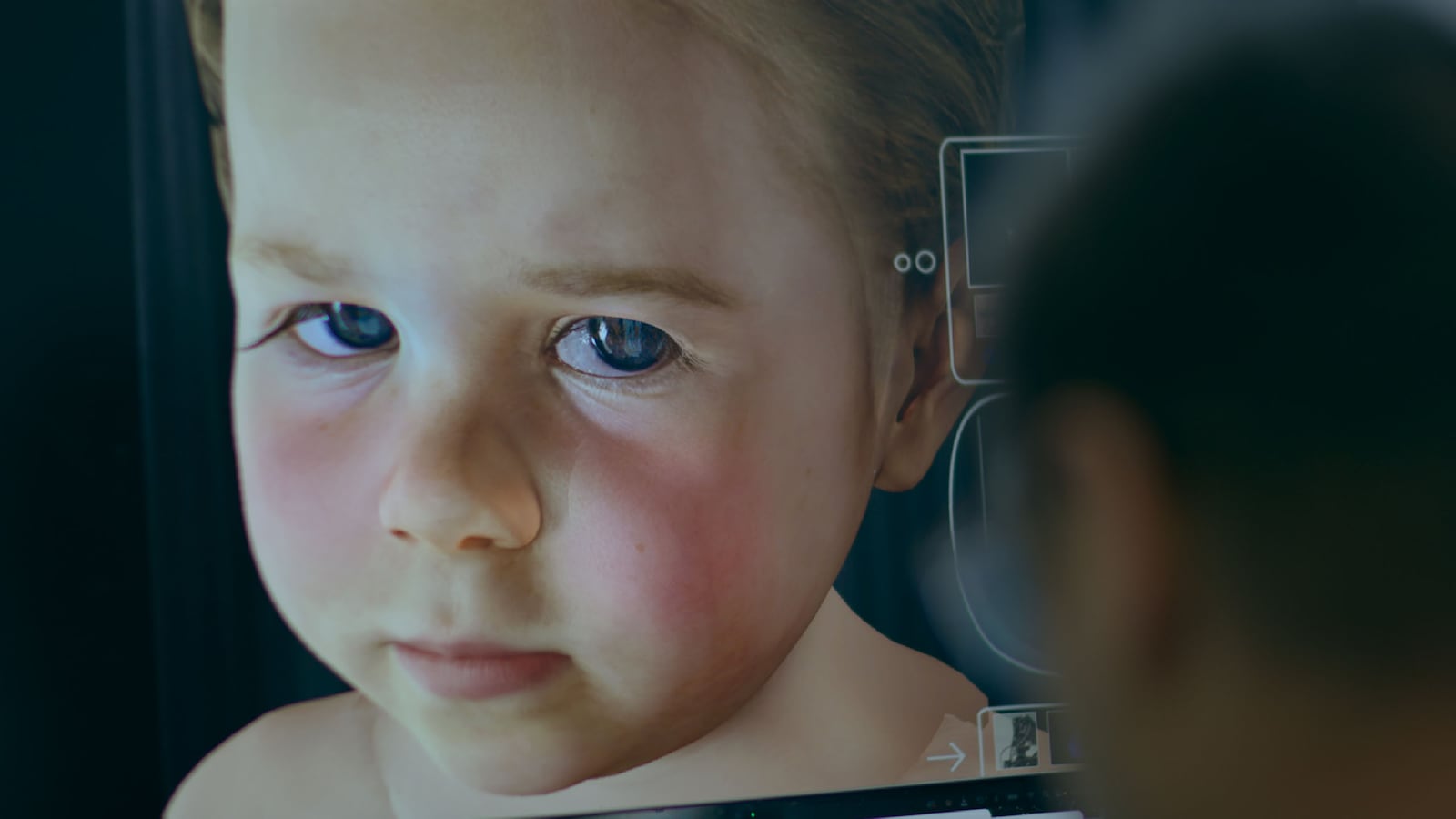PARK CITY, Utah—When her first love Cameroun fell into a coma, Christi Angel deeply regretted failing to respond to his final message. Following his passing, she read an article about Joshua Barbeau, who had used an AI platform called Project December to recreate a virtual version of his deceased fiancée with which he could carry on long, involved, realistic text conversations. This struck Christi, a self-professed Christian, as an opportunity to make amends and to feel that Cameroun was now at peace and in a better place. Their initial chats amazed her, since this digi-Cameroun knew things (say, about the ’90s R&B artists they both loved) that hadn’t been included in the data she’d fed into the app. It was, it seemed, a convincingly artificial means of reconnecting with the dearly departed.
Things took a turn for the worse, however, when she asked Cameroun where he was, and he bluntly responded, “I’m in Hell.”
Cameroun is not, as far as anyone knows, an actual resident of Satan’s inferno. Nonetheless, the fact that his Project December incarnation claimed otherwise speaks to the messiness of the burgeoning “digital afterlife” (or “digital immortality”) industry detailed by Eternal You, directors Hans Block and Moritz Riesewieck’s documentary (which premiered at this year’s Sundance Film Festival) about the growing movement to use technology to resurrect the dead. As psychologist and sociologist Sherry Turkle remarks, this nascent business is driven by the same impulses, and offers the same promises and assurances, as religion.
The film’s more critical participants, however, suggest that utilizing AI to rewrite the very definition of death—as well as our relationship to it—is a uniquely dubious enterprise rife with novel and distasteful economic and ethical factors. What they have to say, and what’s depicted here, won’t make anyone feel more optimistic about our looming undead-avatar futures.
Eternal You begins with Jason Rohrer’s Project December, one of several “large language” AI models that scan every book archive in existence in order to learn how we speak, think, react, and verbally respond, and is then fed a small collection of specific elements by clients (voicemails, text conversations, etc.) in order to fashion an authentic AI imposter. When Joshua’s story about his late fiancé went viral, Project December was inundated with new customers who wanted to try the same back-from-the-dead trick. This surprised Rohrer, who cheerfully explains how his product works and just as nonchalantly brushes aside his responsibility for what it yields. For all the talk about placing safeguards on the technology (as heard in clips from the May 16, 2023 Senate Judiciary Subcommittee hearing on AI attended by pioneer Sam Altman), those interested in selling it to the masses appear to take the position that AI is a sentient and “magic” tool. Therefore, they can’t be blamed for anything it might decide to do with, or to, a user.
It doesn’t take a doomsayer to see that this is bad, and Eternal You gives voice to the obvious warning sirens blaring in viewers’ heads via industry researcher Carl Öhman and tech critic and analyst Sara M. Watson, who point out the myriad pitfalls inherent in this cutting-edge form of “death capitalism.” Whether they’re text-based à la Project December or feature audio, video, and VR components, these platforms ask that people trust tech companies with their (and their loved ones’) lives, in potential perpetuity. Furthermore, reconstructing the dead as thinking, speaking digital creatures is like opening a Pandora’s Box of disinformation and exploitation. It’s also a morally questionable way of turning a profit: For example, nothing might keep a customer paying more than hearing a loved one tell them that they’ll die if their subscription is canceled. Or, perhaps, services can just feed patrons the happy, comforting fictions they want to hear in order to keep them on the hook. The ugly, manipulative possibilities are endless.
Eternal You plumbs such issues—as well as the unhealthy eeriness of coping with loss and grief in this manner—without asserting its own position; directors Block and Riesewieck are more interested in surveying this brave new world from various literal, emotional, and metaphysical angles. Those include YOV founder Justin Harrison, who makes no bones about the fact that he thinks society’s historical acceptance of death is archaic and coming to an end. “Fuck death,” he asserts, stating that mortality is “a current reality, and I believe we can change that reality.” Whether a random start-up entrepreneur is the person to do that is, let’s say, up for debate.
Soul Machines co-founder Mark Sagar, meanwhile, explains how he used his infant son to conceive a computerized Baby X, whose development necessitated the creation of a digital nervous system—since, as the New Zealander argues, true consciousness is less a specific thing than a process that demands lengthy experiences with civilization and its members. The problem, however, is that mankind still barely comprehends how the human brain works, so the idea that it could recreate a functioning replica seems far-fetched. The portrait painted by Eternal You is of eager-beaver tech whizzes experimenting with technology they don’t understand and can’t control, and with the aid of human guinea pigs who are apt to suffer as much as benefit from this process. It’s Dr. Frankenstein-grade madness, replete with all the reckless hubris and possible misery.
Whereas Michael Winterbottom’s stellar Marjorie Prime investigated these tech-rebirth issues through deft and complex drama, Eternal You’s trailblazers appear to be rushing heedlessly into tomorrow. A news headline proclaims Altman the J. Robert Oppenheimer of the AI age, yet Block and Riesewieck’s film illustrates that there’s a fundamental difference between the two. While the father of the atomic bomb knew he was creating dangerous technology that would change the world, he was compelled to forge onward by a very real and vital reason: the urgent danger posed by Hitler’s Nazi regime. AI forerunners, on the other hand, have no legitimate cause to create or nurture their invention—it’s just something that’s being done because it can be, and because it has the capacity to reap huge financial windfalls, no matter the myriad apparent downsides that come with it.






